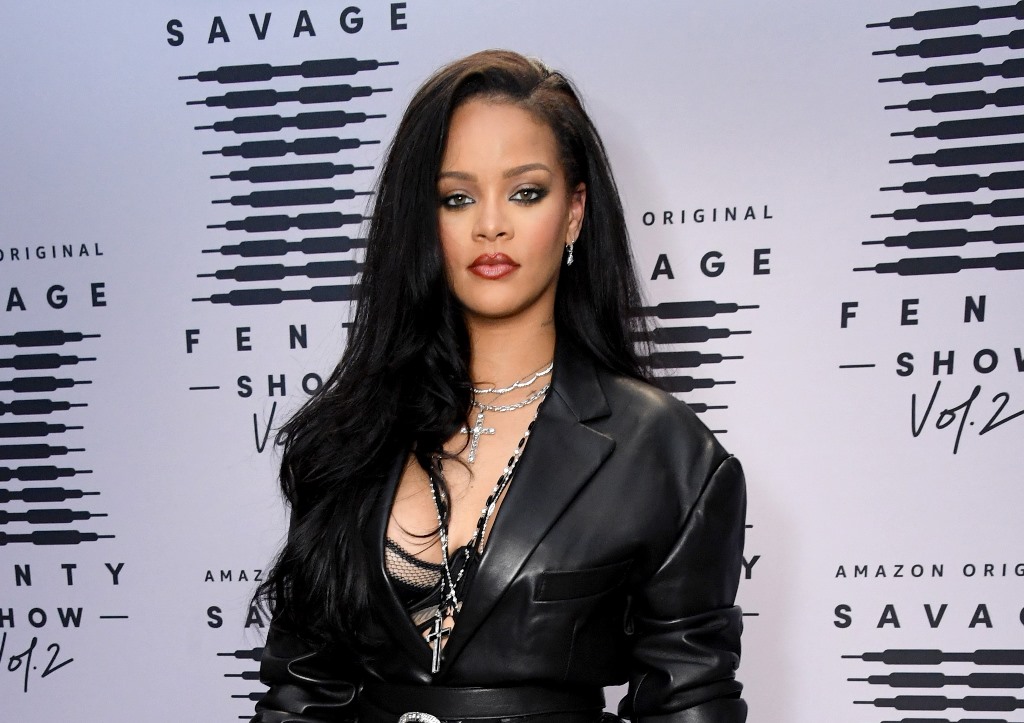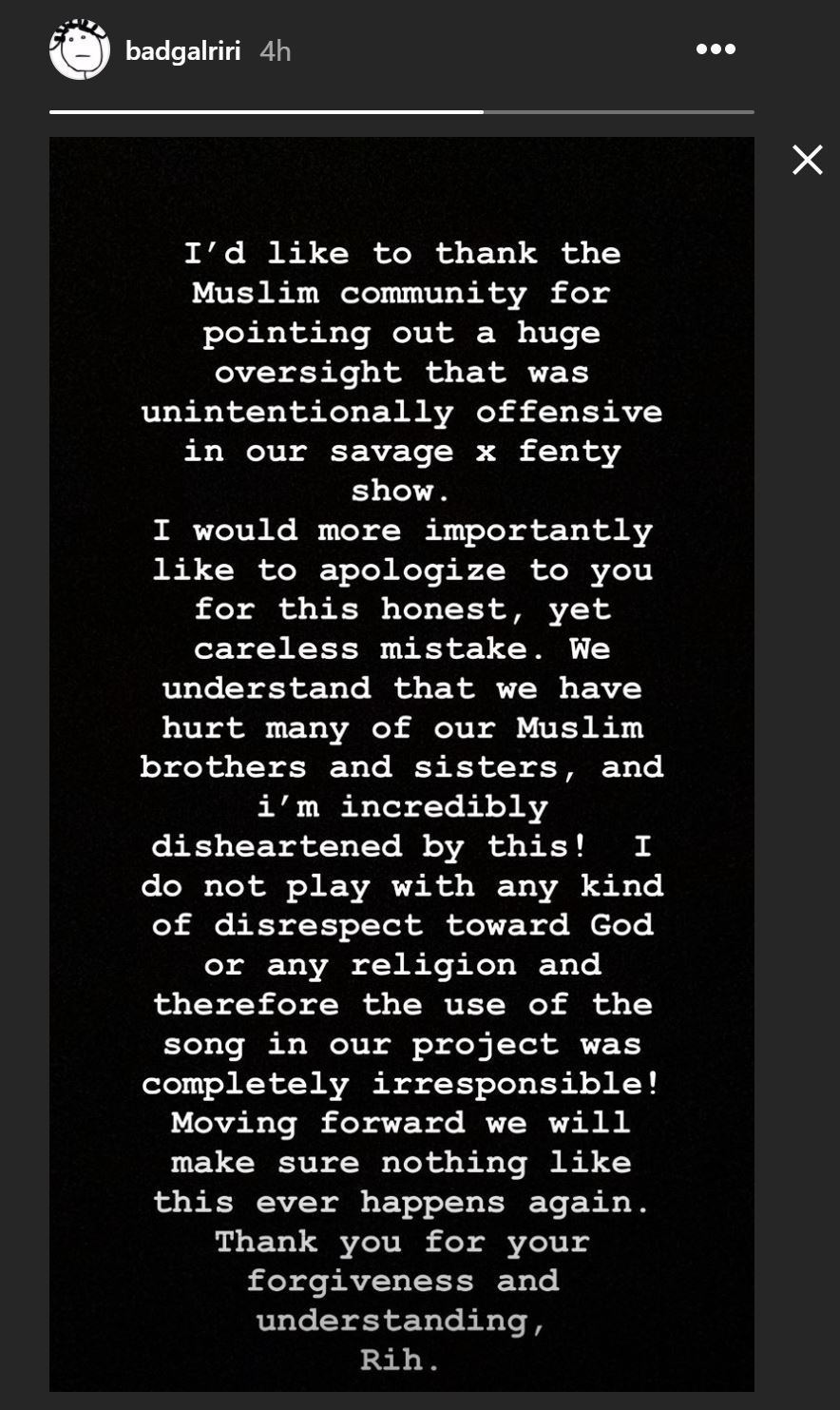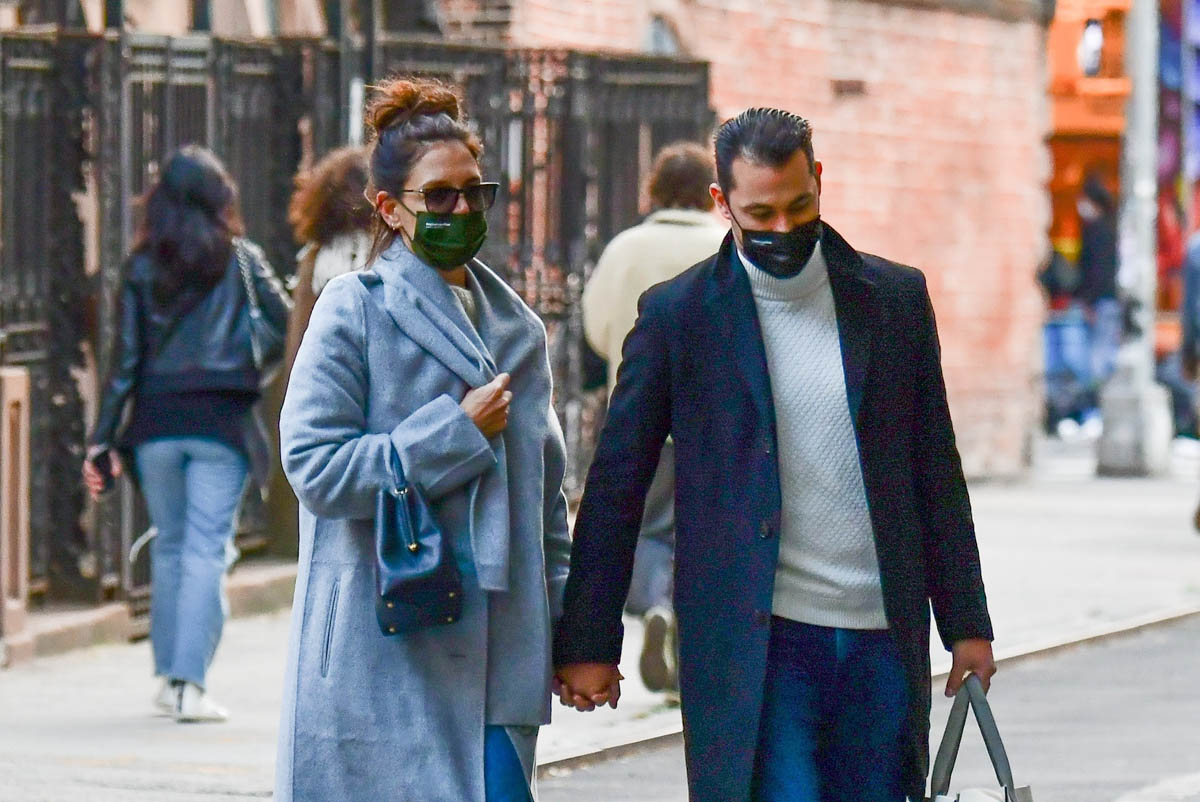Rihanna’s “Unintentional” Intention



Rihanna was a major trending topic on Twitter on Sunday after the release of her Savage X Fenty Vol 2 fashion show on Prime Video. As you may have seen, people were really excited about the collection. So the fact that she was trending was not necessarily a surprise – she is Rihanna, after all. She’s one of the biggest superstars in the world. And Rihanna’s been praised for diversity and representation in her businesses. But that’s exactly why she was trending: because as someone who has made it a point to be inclusive, she was being criticised for cultural insensitivity.
A song called “Doom” by Coucou Chloe was played during the show and the track uses verses from the Hadith. Per CNN, the Hadith is “a written record of the sayings and actions of the Prophet Mohammed and his closest companions, is considered extremely sacred to Muslims, and come secondary only to the Quran in terms of textual authority”.
Members of the Muslim community were offended, understandably, and expressed their outrage on social media, calling Rihanna a hypocrite. Some demanded that she be cancelled.
Coucou Chloe issued an apology on Twitter yesterday:
https://twitter.com/coucou_chloe/status/1313137444573806596
https://twitter.com/coucou_chloe/status/1313137644226908162?s=20
Rihanna has now also issued an apology on social media:

There are so many layers here. Let’s start with the song. Basically what Coucou Chloe is saying is that they heard some tracks online, didn’t understand what the words meant, but thought they sounded cool, and so they put them in a song.
Then Rihanna and her team heard the song, thought the song sounded cool, and put it in the fashion show.
So nobody did the research. Not even Rihanna, a Black woman, who understands how hurtful cultural appropriation can be. It’s mistake on top of mistake, and an example of how casually probably many of us, if not all of us, under the umbrella of “oh but it looks/sounds/feels cool!” can offend a community and commit a cultural offence. If and when that does happen, we often hear, or say, “I didn’t mean to”, which is what we’re getting from Rihanna. In her message she says it wasn’t “intentional”.
But maybe it should be?
Maybe that should be the tweak in our perspective, because more and more, it’s become too easy to wave something away by saying “I didn’t mean to, that wasn’t my intention”. Good intentions are not enough. Not being racist is not enough, as we’ve been hearing over the last few years. Being anti-racist is how we push back and, hopefully, eventually, end racism. Framing it this way makes anti-racism efforts an active process and cultural sensitivity an active mindset. So that instead of not meaning to harm, the way to eliminate these f-ckups is to mean to get it right, be “intentional” about getting it right…which is going to take more research, and effort, and time. Making an “unintentional” mistake is just another way of saying you’re lazy. And we can no longer accept laziness as an excuse for cultural and other forms of insensitivity. This is me too.
Last week, when writing about Joyce Echaquan in Thursday’s site open, I f-cked up. Joyce died because of systemic anti-Indigenous racism in the healthcare system in Canada and in a paragraph about how Indigenous communities have been traumatised for generations by the effects of colonisation, I wrote that:
“There are very few safe spaces for them in a country that was theirs.”
The error is in “was theirs”. It should be “is theirs”. Like this:
“There are very few safe spaces for them in a country that is theirs.”
A reader emailed me to point out the error and it’s now been corrected. But did I mean to use the wrong verb tense? Does it matter? The point is, I did. Because I wasn’t intentional about using the right verb tense. And the fact that I didn’t use the right verb tense says so much. There is unconscious bias there, conditioning from decades of hearing that Canada WAS the land of Indigenous people and internalising it. That one little word, the difference between “was” and “is”, is enough to cause real pain for an Indigenous person reading it because it’s a reminder of all that’s been taken away from them. So it doesn’t f-cking matter that I “didn’t mean it”. All that matters is that that “unintentional” mistake upheld a belief system that continues to harm Indigenous people.
So to bring it back to Rihanna – by not being more intentional about being respectful, Muslims watching her fashion show were made to feel like their faith and their culture, which they have been prosecuted and attacked for, are only valued as an accessory to her glamour. As she acknowledges, it’s “irresponsible”, a better word than “unintentional”. And it’s a step in the right direction. But also…
Maybe don’t just post the message on Instagram stories? Stories disappear after 24 hours. Why not post the apology on the feed, so that it can sit there as a reminder of what proper intention should be?! If we’re talking about intentions, and what we mean, and if the apology isn’t front and centre and lives instead in a fleeting space, what is permanent about the change?

